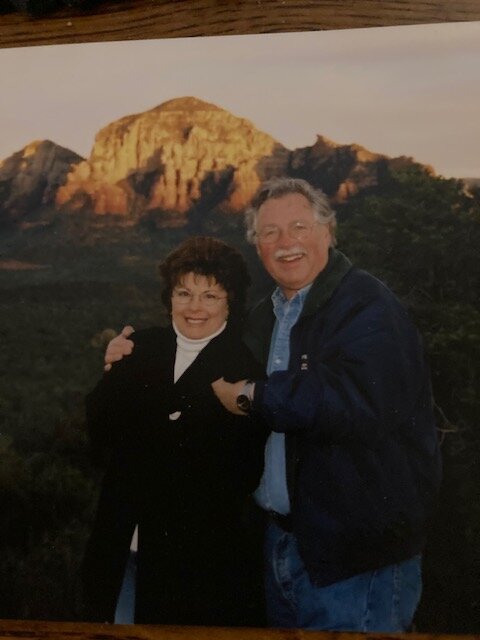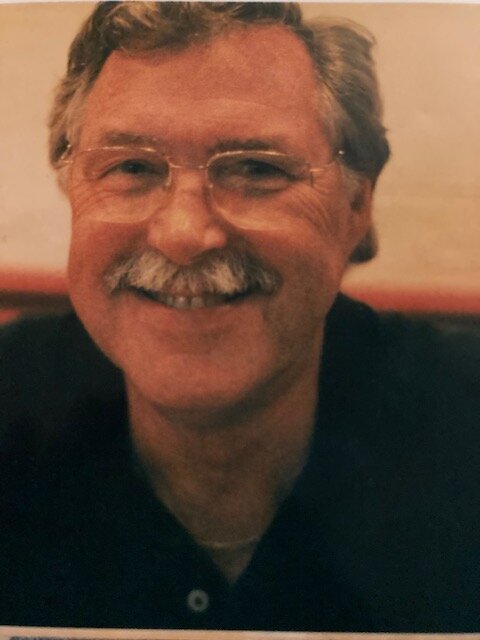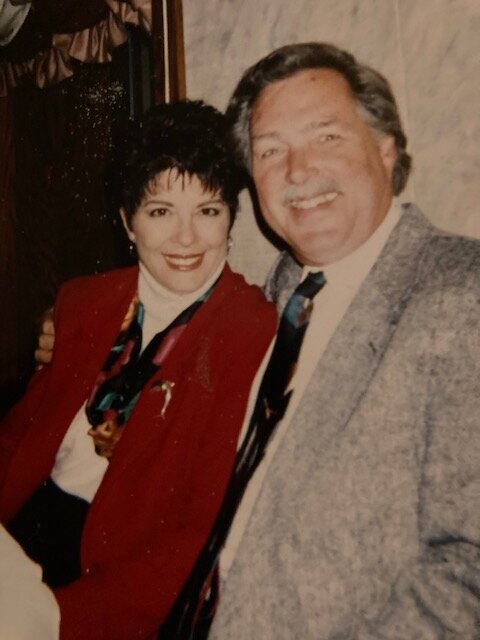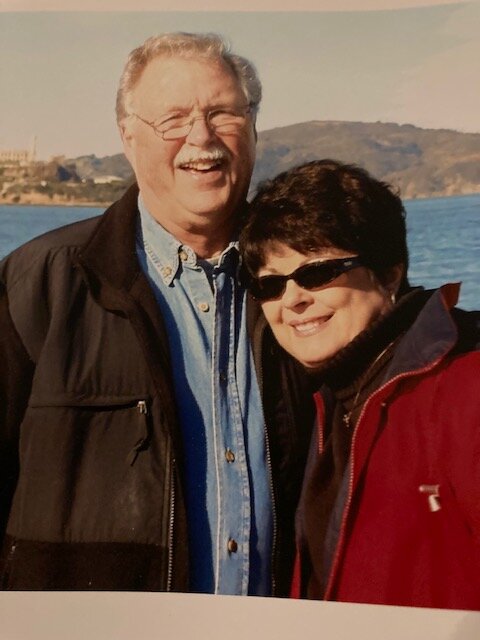Alzheimer’s disease is a degenerative condition that affects memory, thinking, and behavior. Alzheimer’s is a type of dementia that progresses gradually, eventually having a profound effect on the sufferer’s ability to function, both cognitively and physically. Over time, people with Alzheimer’s need an increasing level of care.
Deborah Hunt reached out to UBA and wholeheartedly shared her story of her husband’s life and his tragic diagnosis with Alzheimer’s disease. She notes how both his parents had it and that both herself and David were their caregivers until they passed.
“I remember as clear as day my husband saying to me, “my biggest fear is that I’ll get this…,”.
David’s parents were both almost 90 when they started showing extreme signs, and they both had it at the same time.
Many cases of early-onset Alzheimer’s are linked to gene mutations passed down from a mother or father. Early-onset Alzheimer’s can result from an inherited change in specific genes in three different locations within cells. Someone who inherits one of these three mutations has a very high probability of developing Alzheimer’s before age 65.
Deborah recalls the day she received a notification that both of her cars were going to be repossessed, as the moment she realized something was very wrong.
“I freaked out because my husband pays the bills, and he assured me each month that everything was up to date. I didn’t realize until then that he couldn’t remember how to use the computer. I soon found out that he wasn’t paying any bills. That is when I realized that something was very wrong.”

Her husband, David, was retired but worked part-time. His co-workers had approached Deborah and said that he was having a difficult time at work. More alarm bells started going off for Deborah. One night, when David did not return home at his usual time, Deborah decided to call his work to see how late he would be working. She got told that he didn’t feel well and left work at 4 pm.
“I immediately went into panic mode. I searched the parking lot at his work—no sign of him. I went home and called the police. Somebody told me that a patrol car had been by twice while I was at work because of reports of him driving erratically. They couldn’t find him. I kept calling his phone, but he probably still had it off from work. Finally, at 1:15 AM, he called me. I was crying, asking him where he was. He answered me like a little boy, “I don’t know. I’m lost”. He was 69 miles from home and had no idea how he got there. My heart shattered. That’s when I knew that our worst fears had come true. I was going to lose the love of my life, my person, my partner in crime, to Alzheimer’s. He was now 76 years old, and I knew that we were on borrowed time.”

Deborah managed to get David officially diagnosed a few days later, and that’s when reality set in. Deborah got him on medication and explained how her new reality began.
“My heart was so heavy, but I had to put up a brave face for his benefit.”
Deborah’s whole focus after this moment was to take care of him. She decided to move David and her across the country to be closer to their son and daughter-in-law. David loved being in Colorado, and Deborah believed he was doing well. She could tell he was losing ground but remained relatively stable.
When Covid hit, David couldn’t comprehend why they all of a sudden couldn’t go out to eat anymore or walk around freely as they used to. David was a very outgoing and social person who loved good conversation. Unfortunately, Deborah saw him deteriorate rapidly after Covid hit.
“He became dependent on me for everything. Showering, shaving, toileting.., then he became incontinent. My heart was breaking for us. We were almost at the 40-year mark, and we did everything together. We always had so much fun, to the point that we would get teased about being joined at the hip.”

As David’s deterioration progressed, he started with repetitive motions, first whistling whenever he was not talking. Then constant clapping, day and night. Deborah was so sleep-deprived but had to stay vigilant. Then one day, he ran away. This began a two-week marathon of keeping their house alarmed and watching him 24/7. He ended up in the hospital numerous times for falling. The hospital would then send him to rehab, and he would run away. After a few times, no facility would accept him.
Eventually, the doctor at the hospital brought up hospice, which Deborah was familiar with because she had worked in hospice for 13 years.
“He was getting more and more agitated and threatening. And one day, I got a call, and I was told that a Respite bed on the hospice wing in the hospital opened up and to bring him in. This would give me a five-day break to do everything I hadn’t been able to do because I had to always be with him.”
Deborah continued to visit and spend time with him. On the second night, as she was feeding him, Deborah noticed that he would chew then push out his food. Deborah alerted the nurses that he could no longer swallow.
“I came back early the next day, which I call my bonus day because he was less verbal and less responsive. I would say, “I love you,” and he would make hard-to-understand responses, but he was saying I love you too. So I spent all day showing him pictures on my phone, talking about where we were, how much fun we had. And lots and lots of I love yous because I knew I was losing him.”
The next day David was unresponsive. Deborah spent every day and night for the next seven days talking to him, loving him, telling him that she was going to sell their new house and move in with their kids, and assuring him that she would be ok.

“On November 21st, 2020, lying next to him with my arms around him, my cheek against his, telling him how much I loved him, my soul mate, the love of my life, my whole world, went home to be with the Lord at 2:04 am. I sat with him for 3 1/2 hours until the funeral home came to get him.”
Deborah just passed the one-year mark and celebrated the first anniversary of David’s passing on 11.21.2021. She felt a pull to use her experience to help others, which resulted in the brain story about her husband, David. Deborah is still retired but is volunteering at the Pathway’s hospice, where David was admitted and was taken such good care of. Her volunteer work involves working with Alzheimer’s patients.
At United Brain Association, we strive to raise awareness for, and fund promising research to help find cures for brain disorders and diseases worldwide. For the latest updates, news, events, and information on upcoming and ongoing research projects the United Brain Association is supporting, please sign up for our newsletter.
You Are Not Alone
For you or a loved one to be diagnosed with a brain or mental health-related illness or disorder is overwhelming, and leads to a quest for support and answers to important questions. UBA has built a safe, caring and compassionate community for you to share your journey, connect with others in similar situations, learn about breakthroughs, and to simply find comfort.

Make a Donation, Make a Difference
We have a close relationship with researchers working on an array of brain and mental health-related issues and disorders. We keep abreast with cutting-edge research projects and fund those with the greatest insight and promise. Please donate generously today; help make a difference for your loved ones, now and in their future.
The United Brain Association – No Mind Left Behind




